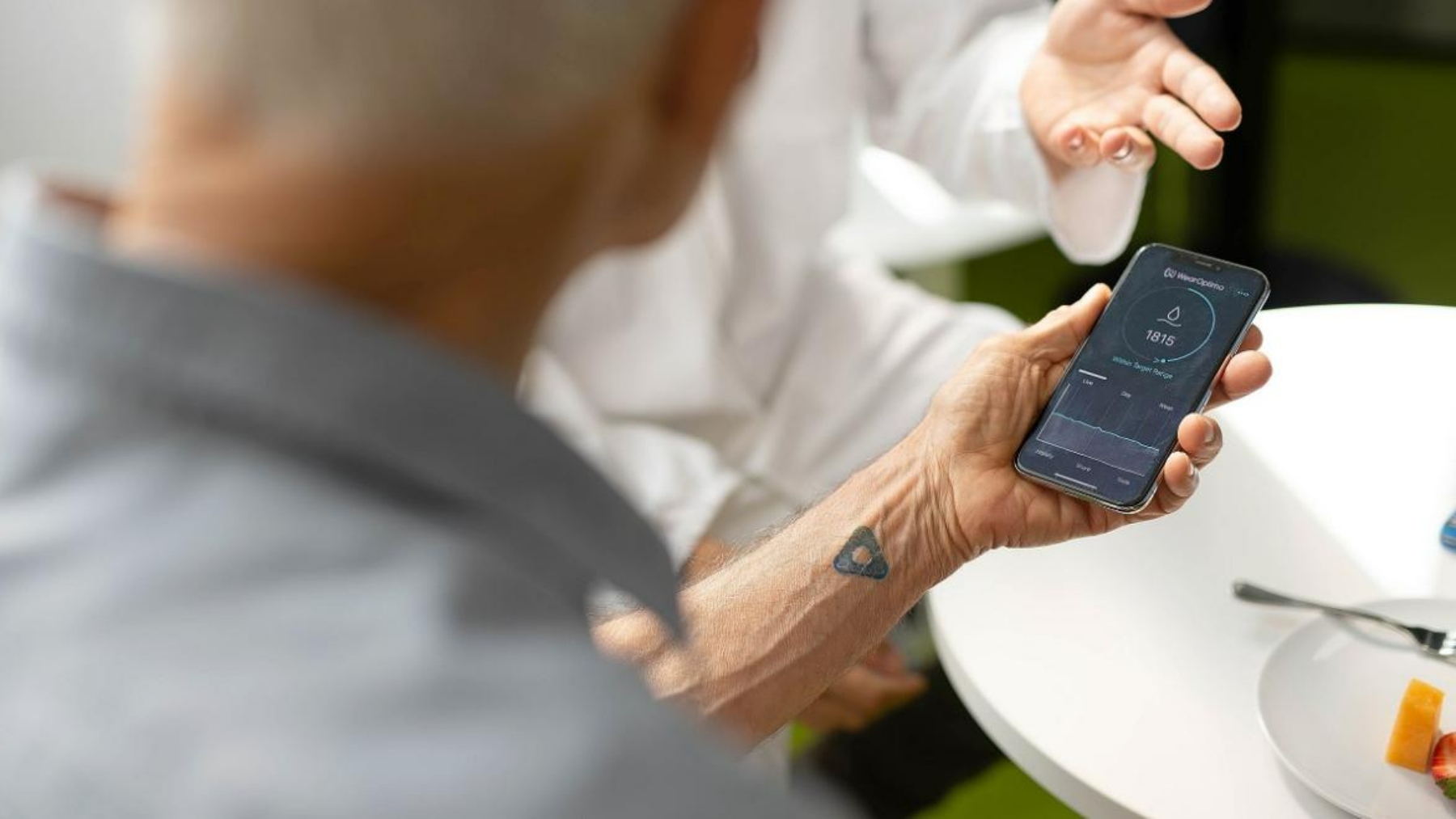Drinking water, eating three times a day, and getting eight hours of sleep. These are usually the three things doctors recommend the most to stay at least somewhat stable, right? But for some of us, one (or more) of those three gets forgotten... Drinking water. Two litters a day. Every day! To avoid dehydration (especially now that summer is coming in the northern hemisphere and temperatures are getting extremely high).
Well, dehydration doesn’t always give clear signs. You could be dehydrating and barely feel thirsty. Did you know that when you start feeling thirsty, you’ve already begun to lose essential physiological functions? Even worse if you exercise or fast for a long time.
A team of scientists has managed to turn a phone screen into a sensor capable of detecting your hydration level just by touching it with your finger! Just like it detects your fingerprint to unlock the phone, now you could know whether you need to drink water because you’re dehydrating.
How does this app work?
King Abdullah University of Science and Technology (KAUST) has developed a system to detect your hydration level just by touching your phone screen.
You don’t need anything else because the capacitive sensor system is already included in your mobile phone, so thanks to a specialized algorithm and the screen’s sensitivity, it can detect changes in skin conductivity associated with dehydration.
And the best part: it can work with any regular touchscreen, no special phone needed!
How is hydration measured from your phone?
Like any fingerprint scanner, you place your finger on the screen and an electrical response is analyzed. In dehydrated people, electrical conductivity is lower, so the system detects these changes and sends an alert to remind the user to drink water.
Tareq Al-Naffouri has led this project and tested the system on two groups vulnerable to dehydration: Muslim individuals during fasting in the month of Ramadan and elite athletes after physical exertion.
What is Ramadan?
Ramadan is one of the most important months in the Islamic religion. During this month, Muslims perform one of the five pillars of Islam, called sawm (fasting), which consists of not consuming food or liquids during daylight hours, from sunrise to sunset. It commemorates the first revelation received by their prophet, Muhammad.
So yes, people who observe Ramadan are much more likely to suffer dehydration precisely because they go many hours without eating or hydrating.
Applications in health, sports, and more
This technology goes beyond personal wellness, as it could be integrated into healthcare programs for the elderly, patients with chronic illnesses like diabetes, or even help prevent heatstroke in extreme-temperature workplaces.
How did they do it?
As we said, your phone already has all the features, and so does your finger. They used bioelectronics to conduct this study. Let’s say that skin works as an electrical conductor. The more water there is in your body, the more electrical charge it holds. But if you’re dehydrated, your body’s ability to hold that charge gets lower.
The FDC2114 board is what detects this, amazing! It achieved 92% accuracy with the group of athletes and 87% with the fasting group, incredible!
When will it be available?
Although the technology isn’t on the market yet, the developers say integrating it into existing devices is viable and inexpensive. It only requires a software update and algorithm adjustments, with no need to change the current hardware in phones.
So, our phones could serve as non-invasive medical devices, and just like a test, with a single tap we’ll know if we need to drink more water! It is incredible, don’t you think so?!


